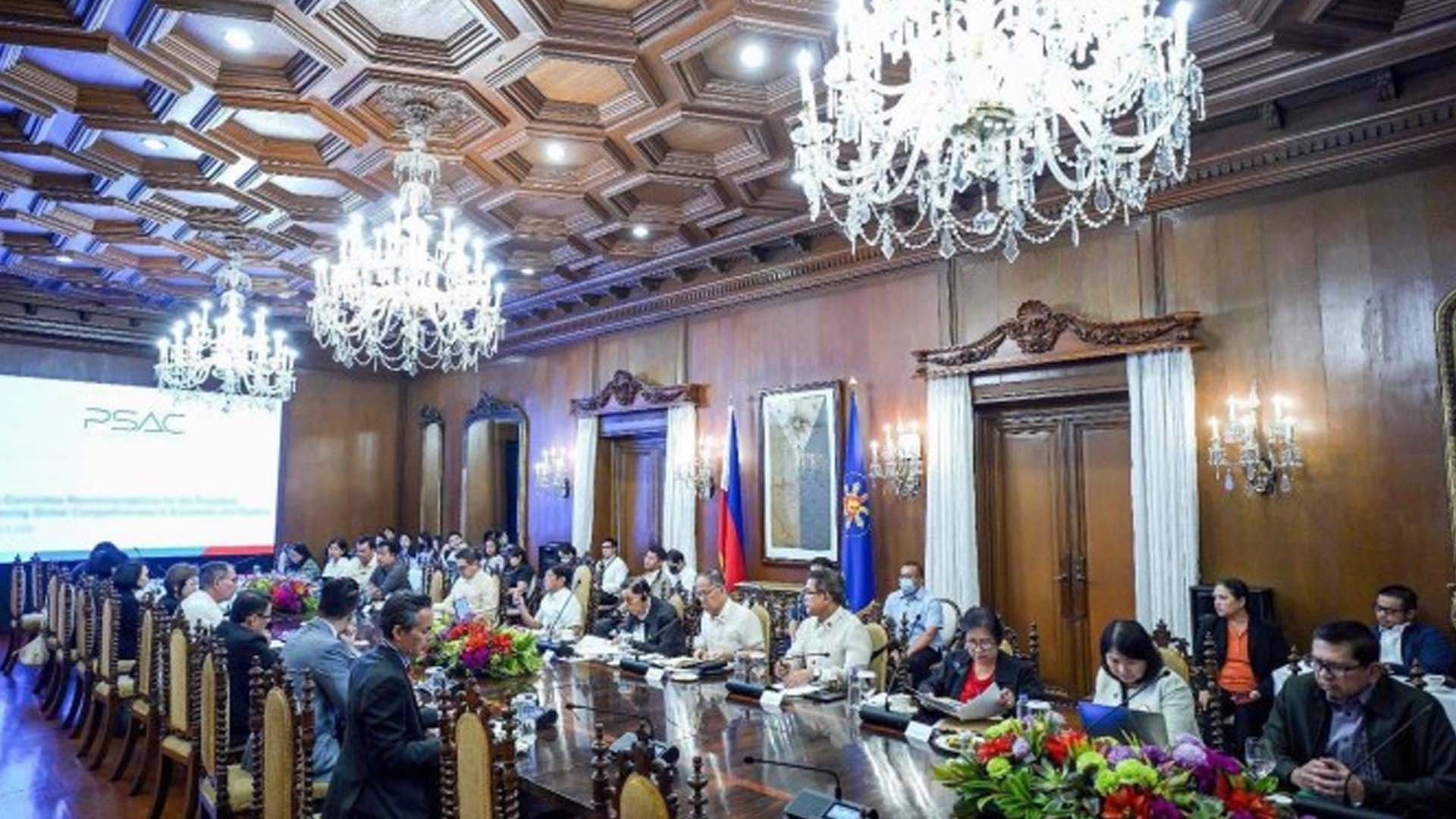The Private Sector Advisory Council (PSAC) has recommended the creation of an upskilling fund and the training of more health and information and technology (IT) workers to boost job generation.
PSAC’s recommendations were tackled in a meeting convened by President Ferdinand R. Marcos Jr. at the State Dining Room of Malacañan Palace in Manila on Thursday.
Based on a statement posted on the official Facebook page of state-run Radio Television Malacañang (RTVM), the PSAC called on Special Assistant to the President on Investment and Economic Affairs Frederick Go to study the possible establishment of an upskilling fund.
The PSAC-Jobs Sector said the fund could be financed through the adoption of the Global Minimum Tax, a tax treaty which imposes a minimum rate of 15 percent on the profits of multinationals.
In a separate statement on Friday, Communications Secretary Cheloy Garafil said Marcos also expressed support for the PSAC’s recommendation to train more Filipino workers in healthcare and IT sectors and to require them to serve at least two to three years in the country before they can seek jobs abroad.
DPSAC officials conceded that the local labor market for the two sectors cannot match the lucrative pay being offered by companies and healthcare facilities in the United States, United Kingdom, Australia, and other European countries.
Marcos agreed with the proposal, as he acknowledged the “brain drain” in the healthcare and IT industries, as more and more skilled Filipino workers seek greener pastures overseas, leaving the country with few talents to support the sectors.
“It’s fine [because] if they find jobs abroad, that’s good for them. But the problem is tayo dito (here), we lose the talent that we train… that we took through the certification system,” he said during the meeting with PSAC, as quoted by the Presidential Communications Office (PCO).
“We have to come up with some kind of strategy wherein, let’s say, you provide scholarships and then the scholarship agreement includes that you stay three years. After that, then they’re free to go,” he added.
Garafil said the PSAC also urged Marcos to further reinforce his earlier directive to prioritize the crafting of a coordinated game plan that the Department of Health (DOH), the Commission on Higher Education, and the Department of Foreign Affairs can negotiate with other countries on hiring Filipino workers.
The advisory body also said the DOH human resources for healthcare master plan must be supported, suggesting the government should prioritize negotiating with other countries such as Canada, US, Australia, according to Garafil.
“This includes requiring them to adopt a hospital or a school, invest in them so that they can participate in the country’s labor force and afterwards require the graduates to stay in the Philippines for at least two years before they could seek employment overseas,” Garafil said, adding that such scheme could give the country more time to sustain the supply of workers.
PSAC officials stressed the need for the Technical Education and Skills Development Authority to triple the current Enterprise-Based Training placements in priority industries by 2025.
They likewise urged Go to work with them and the mining sector to identify immediate opportunities in downstream industries for economic expansion in key sectors, among others.
The PSAC-Jobs Sector presented to Marcos the three Sharp Focus on Global Competitiveness or the top three investor concerns.
“These include Talent (aiming to solve skills mismatch with industry driven solutions), Incentives (aiming to adopt global minimum tax creatively) and Ease of Doing Business (eyeing to systematically and quickly slash red tape),” read the statement posted on RTVM’s Facebook page.
The number of employed Filipinos reached 50.52 million in December 2023, with 0.88 million jobs generated since November 2023, according to latest Philippine Statistics Authority report.
The PSA report also showed that the unemployment rate further declined in December 2023 to its lowest rate of 3.1 percent from the previous month’s 3.6 percent. (PNA)























